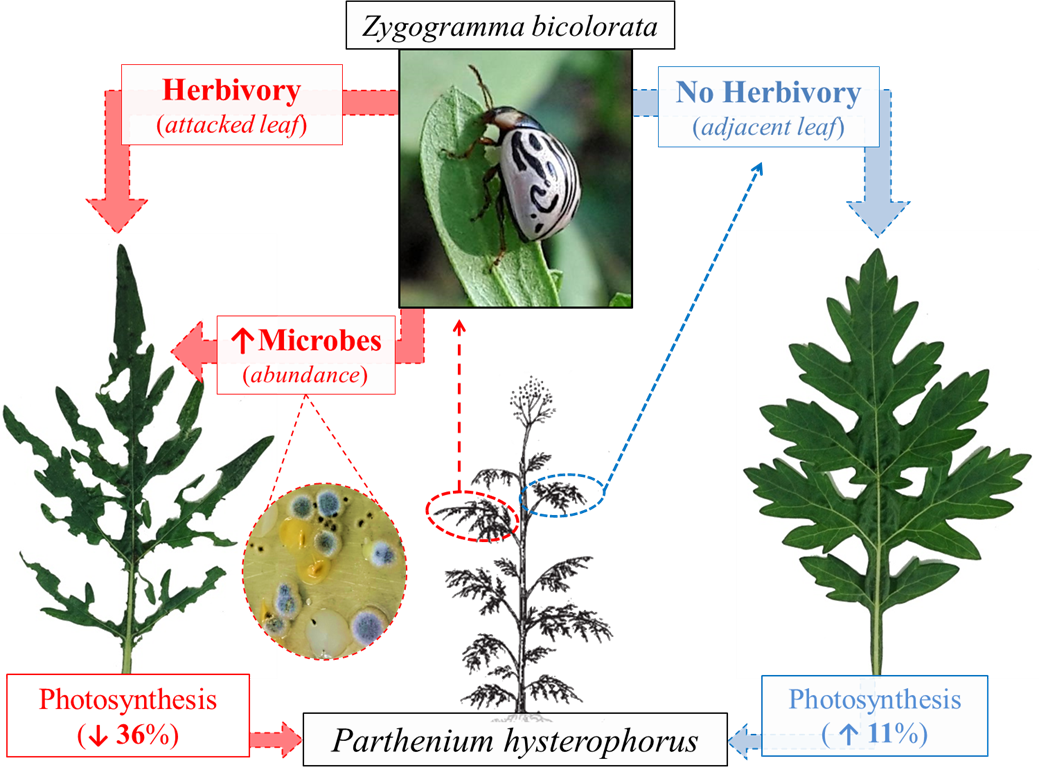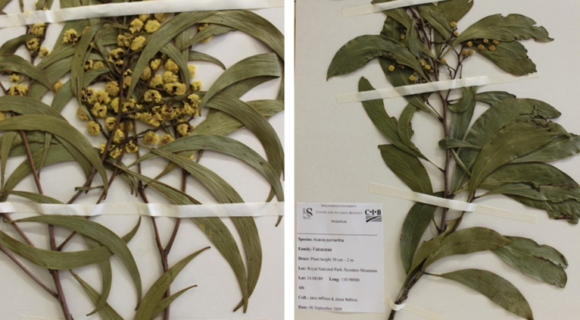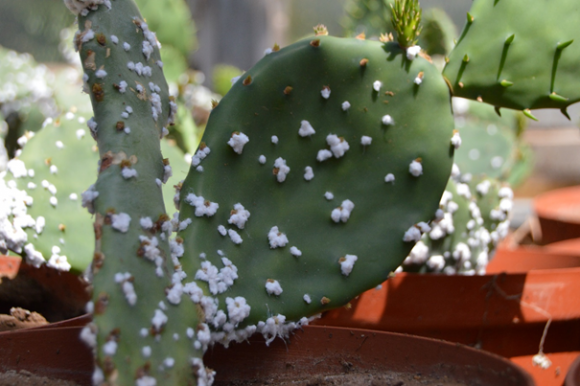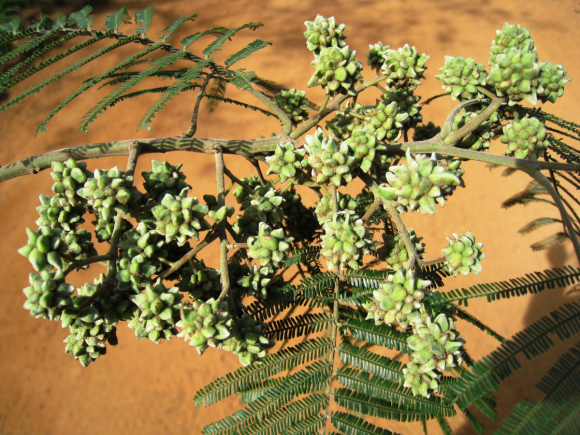A paper published in the journal Biological Control showed that leaf-feeding beetles may be one of South Africa’s most promising biocontrol agents for famine weed. Research carried out by C·I·B PhD student Blair Cowie, under the supervision of Core Team Member Prof. Marcus Byrne, at the University of the Witwatersrand, assessed the ecophysiological response of famine weed (Parthenium hysterophorus) to herbivory by the beetle biocontrol agent, Zygogramma bicolorata.
Following success in parts of India and Australia, South Africa first released these beetles during 2013 to aid in the biocontrol of famine weed. Adult beetles and their larvae feed voraciously on the plants’ leaves, and under favourable conditions can completely defoliate large swathes of the weed. Although the beetle has established at many release sites in KwaZulu-Natal and Mpumalanga, it has done so in highly varied numbers. This has led to concerns surrounding the ability of famine weed to compensate and overcome low levels of herbivory.
Ecophysiology research showed that herbivory reduced famine weed photosynthesis by ~36% in beetle-damaged leaves. This decline in photosynthesis was attributed to beetle feeding, as well as an increase in microbe abundance which was not seen in “artificially browsed” leaves. However, in response to this attack famine weed compensated by increasing photosynthesis in neighbouring, undamaged leaves by 11%. Nevertheless, despite its ability to up-regulate photosynthesis, if one third of its leaves are eaten the weed is unable to overcome the combined physiological implications of herbivory and increased microbial activity.
“Given the potential effectiveness of these beetles, every effort should be made to maximise beetle numbers and damage in the field. Biocontrol efforts against famine weed are still in the early stages, so we can hope to see greater damage from the agents, particularly Z. bicolorata, in the future,” according to Cowie, lead author of the paper published in Biological Control.
Read the full paper:
For more information, contact Blair Cowie at blair.cowie.bc@gmail.com




